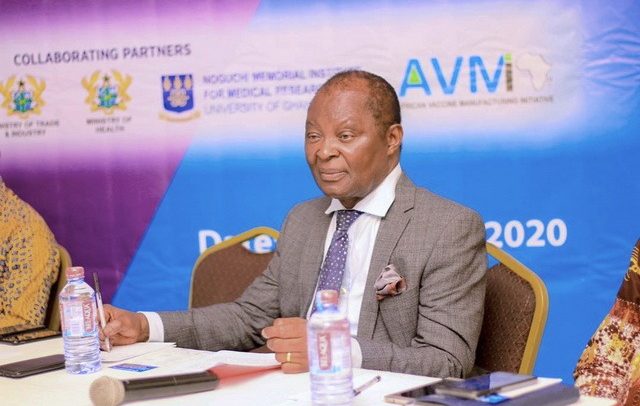Phram. Harrison Abutiate
The Ghana National Chamber of Pharmacy (GNCoP) has advocated for stronger government collaboration with the private sector in the country’s quest to access more Covid-19 vaccines for citizens.
The GNCoP indicated that it was time the government and the private sector work together to leverage on their strengths to get enough vaccines for the general population.
“We have credible members of the GNCoP with the right network and experience to help source WHO approved Covid-19 vaccines and they are willing to support the process,” Chairman of the GNCoP, Phram. Harrison Abutiate, said in a press statement issued at the end of the national executive council meeting in Accra.
He said the rest of the world are not panicking over the pandemic anymore because they are focused on getting access to vaccines and increasing their vaccination rates to herd immunity levels.
“Increased vaccination is leading to less hospitalization and deaths even as they open their schools and their economies have started picking up, just because they are strictly observing all the relevant protocols and applying stringent and punitive actions, including spot fines, against defaulters,” he added.
He further noted that other African countries like South Africa, Morocco and Senegal are setting up local vaccine packaging and production capabilities and, “we have to fast track the process to follow suit locally to sustain the demand now and the near future.”
He urged the public to move on with the lessons learnt out of the abortive attempt to procure Sputnik V vaccines and support the process in procuring enough vaccines from all credible sources with the help and collaboration of Ambassadors and High Commissioners in various parts of the world.
“We need to put together our expertise as Ghanaians and partner the relevant external bodies to procure and produce enough vaccines thus preventing increased morbidity and mortality due to Covid-19 pandemic and its variants in Ghana,” he said.
By Jamila Akweley Okertchiri

